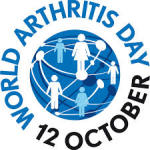
Ankylosing spondylitis
Arthritis drugs may contribute to stroke death says new study
 Commonly prescribed, older drugs for arthritis and pain may increase the risk of death from stroke, according to a study published in Neurology.
Commonly prescribed, older drugs for arthritis and pain may increase the risk of death from stroke, according to a study published in Neurology.
COX-2 inhibitors are selective nonsteroidal anti-inflammatory drugs (NSAIDs) that include older drugs diclofenac, etodolac, nabumeton and meloxicam, as well as newer drugs called coxibs, including celecoxib and rofecoxib. Continue reading
Chewing gum before surgery is likely to be safe
 It is commonplace to be asked not to eat or drink before operations so as to prevent complications from anaesthetics, but until now it has been unclear if the same is true for chewing gum. Now a small (not yet published) study has found that it’s probably nothing to worry about.
It is commonplace to be asked not to eat or drink before operations so as to prevent complications from anaesthetics, but until now it has been unclear if the same is true for chewing gum. Now a small (not yet published) study has found that it’s probably nothing to worry about.
A total of 67 people who underwent gastrointestinal endoscopic procedures were split into two groups. Continue reading
Seconds count when you have arthritis…
 What does a second mean to you? For many people a second could mean the difference between missing the last post or running late and not getting the last train home. But for someone with arthritis, those seconds are regularly missed and they can turn from minutes to hours in the struggle to get through the day.
What does a second mean to you? For many people a second could mean the difference between missing the last post or running late and not getting the last train home. But for someone with arthritis, those seconds are regularly missed and they can turn from minutes to hours in the struggle to get through the day.
Continue reading
Fear of pain could increase risk of multisite pain
 Pain catastrophising and fear of pain might increase the risk of developing multisite pain following injury, says research due to be published in The Journal of Pain.
Pain catastrophising and fear of pain might increase the risk of developing multisite pain following injury, says research due to be published in The Journal of Pain.
Experts looked at the value of pain catastrophising, fear of pain and depression in the prediction of multisite pain after delayed onset muscle soreness (ie pain induced in the laboratory). A total of 119 (63 women, 56 men) healthy university students took part in the study. Continue reading
Questions raised about new joint implants
 Innovations to devices used in joint replacement have been introduced without enough evidence that they are any better than existing implants, suggests a large review published in the British Medical Journal.
Innovations to devices used in joint replacement have been introduced without enough evidence that they are any better than existing implants, suggests a large review published in the British Medical Journal.
A total of 118 studies were included, that involved 15,384 implants in 13,164 people.
The research team was looking for data on modular femoral necks, ceramic-on-ceramic bearings, and uncemented monoblock acetabular cups used in hip replacements, and for gender-specific and high-flexion implants in knee replacements. Continue reading
